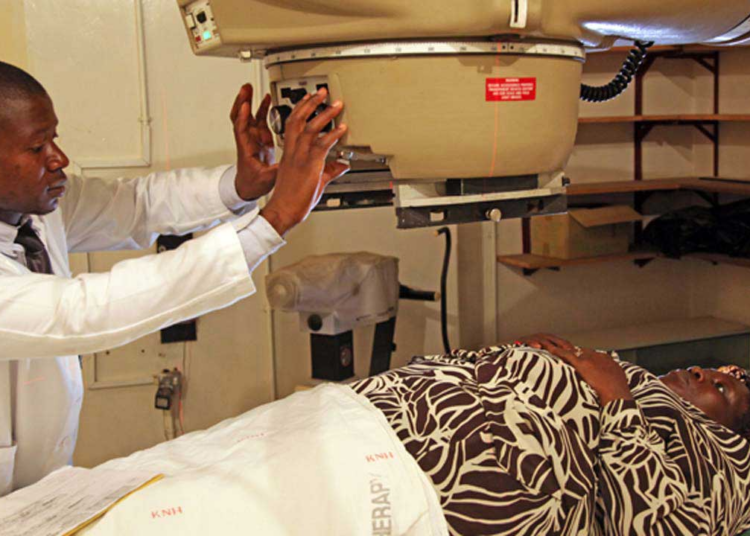This year’s commemoration of World Cancer Day offers a three-year journey to raise awareness about one of the world’s biggest killers.
The campaign theme 2025-27 “United by Unique” will explore different dimensions of people-centered cancer care and new ways of making a difference.
According to the World Health Organisation (WHO), cancer is more than just a medical diagnosis – it’s a deeply personal matter and behind every diagnosis lies a unique human story – stories of grief, pain, healing, resilience, love and more.
People-centered care accepts everyone for who they are, and it aims to deepen the connection not only between healthcare providers and patients but with whole communities.
Cancer is one of the leading causes of morbidity and mortality worldwide, with approximately 14 million new cases in 2021.
According to WHO, cancer kills around 10 million people a year and is a leading cause of death globally,
The World Economic Forum (WEF) noted that the number of new cases is expected to rise by about 70 per cent over the next two decades with approximately 70 per cent of deaths in low- and middle-income countries (LMIC), including Nigeria.
The forum expressed concern that many LMICs do not have the required health systems infrastructure to adequately treat and care for people with cancer because diagnostics, medicines and other services for comprehensive cancer care are simply not available.
In fact, treatment and care for cancer is available in less than 15 per cent of LMICs against more than 90 per cent in high-income countries. An anecdotal evidence from Union for International Cancer Control (UICC) members across the globe support these figures.
We recall that the WHO Model List of Essential Medicines was established by the World Health Organisation (WHO EML) in 1977 and is updated every two years, including over time, an increasing number of cancer medicines.
However, more than 50 per cent of cancer medicines on the WHO EML are not available to patients living in LMICs, who represent over 45 per cent of the world’s population.
This is due, in part, to a weak health system and insufficient infrastructure but also because of other barriers, such as fractured diagnostics landscapes and shortages or maldistribution of the health workforce, as well as multidimensional, logistical and financial challenges: high costs, lack of quality assurance, frequent stock-outs, and complex regulatory pathways.
There remains a discrepancy between evidence-based national essential medicines lists (NEMLs) and the WHO EML, and policymakers may not be prioritising access to essential cancer medications.
It is lamentable, in our view, that only one in five low- and middle-income countries have the necessary data to drive cancer policy.
As Nigeria joined the global community in celebrating the day, challenges in cancer care continue to cast a shadow over the survival chances of thousands of patients.
The country faces severe shortage of specialists, high cost of treatment, and late-stage presentation of cases; factors that have made cancer one of the deadliest diseases in Nigeria.
In Nigeria, the World Health Organisation (WHO) report that cancer Kills 240 Nigerians daily, meaning 10 Nigerians die every hour from cancer.
The global health body revealed that cervical cancer kills about 24 Nigerian women daily; prostate cancer kills about 26 Nigerian men daily and breast cancer kills about 40 Nigerians daily.
For now, thousands of cancer patients in the country continue to battle not just the disease, but also the harsh realities of an underfunded and overstretched healthcare system.
However, the federal government said it has finalised plans to establish and upgrade six federal teaching hospitals with new radiotherapy and nuclear medicine facilities across the country.
It said three of the centres are planned to be commissioned in May 2025 and the remaining three will be commissioned on or before the 2026 World Cancer Day.
We recognise that the economic impact of cancer is significant and is increasing with the total annual economic cost of cancer. In 2010, this was estimated at approximately US$1.16 trillion.
Addressing cancer is now critical as scientists work to improve the treatment and diagnosis using AI, DNA sequencing and precision oncology, among other techniques.
In October 2024, the WEF announced 12 new breakthroughs in the fight against cancer.
A new trial giving cervical cancer patients a short course of chemotherapy before starting the standard treatment has cut the risk of death by 40 per cent.
These are no doubt, cheering news in view of the dismal outlook that has dogged cancer care over the years.
In our considered opinion, WHO, in view of the posers raised by the WEF, should ensure updated and revised evidence-based national essential medicines lists (NEMLs) that respond to a country’s needs, with the registration and approval of medicines in-country, as a crucial first step.
To guarantee that patients will receive the right medicines at the right time, measures need to be put in place for procurement and supply chain practises, treatment guidelines and the training of health workers – to ensure the smooth and timely delivery of essential cancer medicines up to the last mile.
Cancer is a large group of diseases, involving the abnormal multiplication and spread of cells due to genetic mutations. It can affect almost any part of the body, disrupting normal functions.
According to studies, symptoms of cancer vary but may include fatigue, night sweats, unexplained weight loss, skin changes, persistent pain, or organ-specific symptoms like blood in stool or new lumps.
The risk factors include family history of cancer, lifestyle choices (smoking, poor nutrition, and lack of exercise), environmental exposures (toxins like asbestos and pesticides), radiation (UV radiation or excessive medical radiation) and hormonal therapy.





